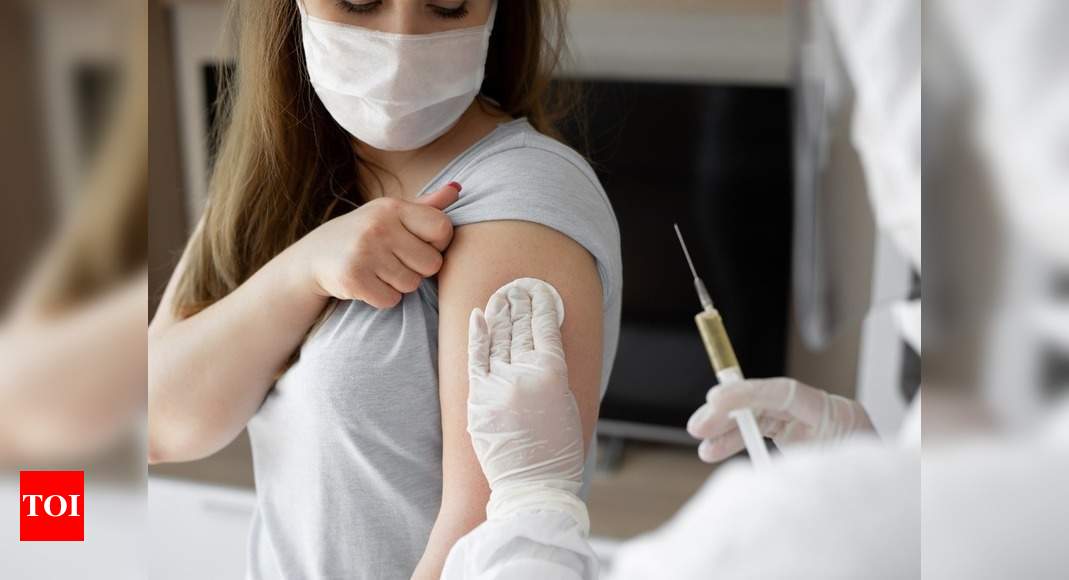

The second wave of COVID is hitting India strong with cases rising at a record rate. Unlike the first wave of the virus, the ongoing wave is also affecting people below the age of 45 years and children rampantly. This combined with factors such as ease of restriction in movement, clusterization of cases, home-grown mutant variants of SARS-Cov-2 etc. has made it even more critical for us to not let our guard down. With the government working towards ramping up the vaccination process further, each one of us must be aware of all aspects of vaccination and come forward to get vaccinated once eligible.
Here are some of the most frequently asked questions around COVID-19 vaccination:
Can a person presently having COVID-19 (confirmed or suspected) infection be vaccinated?
No, people who are confirmed or suspected of the COVID-19 infection may elevate the chance of spreading the same at the vaccination site. Hence, it is advised that the infected individuals should delay their vaccination for 14 days after symptoms resolve.
Will the flu vaccine protect me against COVID -19 infection?
Although influenza and COVID -19 infection share the same symptoms, the influenza (Flu) vaccine does not protect you against COVID-19 infection.
Will the COVID-19 vaccine give me COVID-19 infection?
No. The COVID-19 vaccine does not contain SARS-CoV-2 and cannot give you COVID-19 infection.
Is the vaccination introduced in India as effective as the ones introduced in other countries?
Absolutely, the COVID vaccine established in India is as efficacious as any other vaccine developed by other countries. There have been several trials which have been undertaken to ensure its safety and efficacy.
Will the COVID-19 vaccine provide long-term protection against the virus?
It is too soon to claim if the COVID -19 vaccine will provide long-term protection against the virus or not but presently it is found that it protects for 6- 8 months after booster vaccination.
What are the precautions that need to be taken before the COVID -19 vaccine?
-If you are allergic to certain medication or drugs, discuss with your doctor before getting the shot.
-People with diabetes or blood pressure need to keep their blood sugar and blood pressure levels in check before scheduling their appointment. It is advisable to consult your treating physician regarding the same.
-Eat a healthy diet before getting the vaccine.
-People who have received blood plasma or monoclonal antibodies should wait for two months before taking the vaccine.
-Wear proper clothing which gives easy access to upper arm area.
-Follow COVID-safe practices at the vaccination site i.e. wear a mask, wash/sanitize hands frequently, maintain social distance
Which the is the better vaccine among the three currently being made available to the masses?
Covisheild, Covaxin and Sputnik V (which has recently been added to the list of approved vaccines in India) work fine in preventing the infection as well as going into severe state of the disease. In the long-term, it prevents death for elderly people or those who have comorbidities.
Are vaccine side effects more frequent among elderly people?
No. On the contrary, elderly people have a less reactive immune system and therefore experience less side effects compared to younger adults.
Is it advisable for pregnant or breastfeeding women to get the COVID-19 vaccine?
Vaccination can be offered to breastfeeding women if they are part of a group prioritized for vaccination. WHO does not recommend discontinuation of breastfeeding after vaccination.
Do I need to wear a mask and avoid close contact with others if I have received both doses of the vaccine?
The vaccine might prevent the vaccinated person from getting COVID-19 infection. However, it is still not confirmed if a vaccinated individual can asymptomatically spread the virus to other unvaccinated people or not. Hence, it is advised to adhere to COVID-safe practices.
Will the vaccine impact younger people differently? What are certain side effects that will be less prominent in the youth. Are there any they are more likely to witness?
A few studies do claim that the COVID vaccine’s more frequent side effects for young. It is important to remember that the vaccine may impact people differently. Some may not experience as severe symptoms, and some may need to consult their physicians post getting vaccinated. We must remain alert and cognizant of what we experience post receiving the shot.
The article has been authored by Dr. Sushila Kataria Senior Director Internal Medicine, Medanta, The Medicity
read the full story about Nervous about getting the COVID-19 vaccine?
#theheadlines #breakingnews #headlinenews #newstoday #latestnews #aajtak #ndtv #timesofindia #indiannews

Leave a Reply